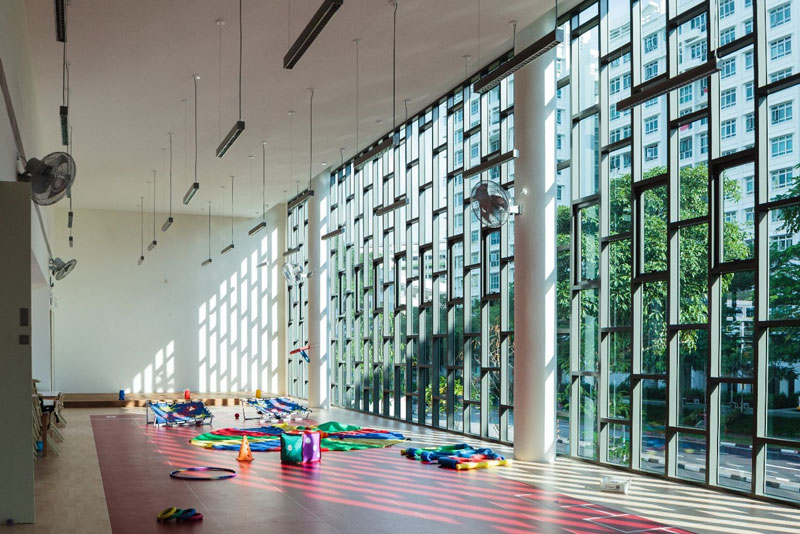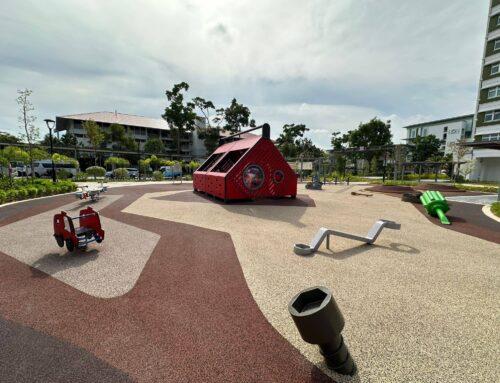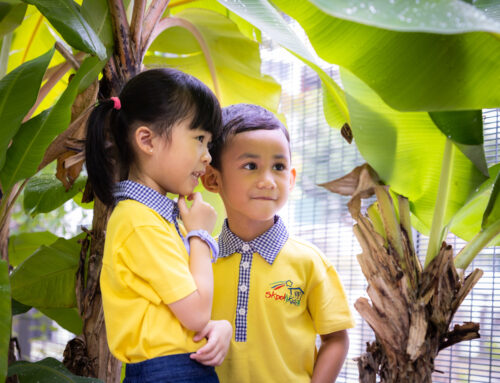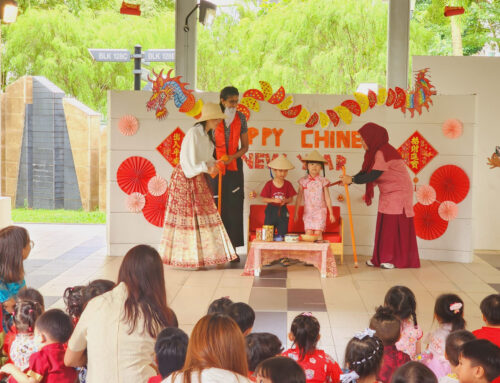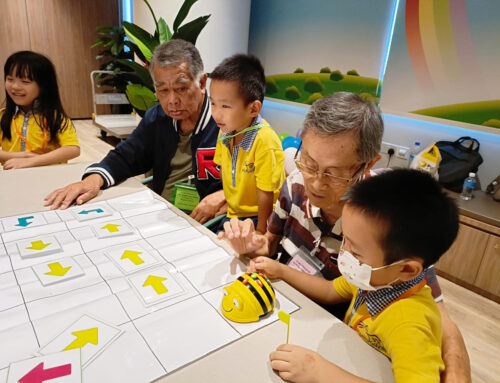Tips for parents
Toddler Development – Early Bloomers or Late?
Benchmarks. Milestones. Norms. Expectations. Parents often wonder and worry if their children are doing fine. It is another parental instinct – we look at the next child and inevitably compare our toddlers with their peers. But here’s the thing: The real measure of your child’s development is how he’s progressing compared with himself — not anyone else. If she’s learning new words, skills, and concepts regularly, then she’s doing just fine. However, if he seems to be at a standstill or regressing in certain areas, that’s a red flag. Don’t be shy — talk to your child’s doctor and teachers about any concerns you have because if intervention is necessary, the sooner the better. We have an in-house specialist at our school to help observe your children’s developmental progress, and we identify their gifts as well as their growing pains and difficulties if any.
Here’s what to look out for in the FOUR MAIN AREAS of typical child development:
SPEECH
Baby-talk, cooing and babbling is speaking! Speech and communication start in these ways, and so much happens between you and your child in non-verbal ways. Keep talking, Mums & Dads! They acquire language from you best. They build their listening and speaking skills from conversations (or monologues) that you think you are having alone, but storytelling is a great way to speak and chat with your little one. Are you still trying to decipher some of your toddler’s talk? Not to worry — most 2.5 year olds speak unintelligibly some of the time, as they continue to work at coordinating the thoughts in their brains with the movements of their lips and tongues. By age 3, you should understand him clearly at least half the time. She ought to be gesturing, pointing and speaking phrases by now. At the very least, by age 2, he should be calling out for Ma/Mum, Pa/Dad (one-syllable words, CVC word patterns) and nodding “Yes” or saying “No”.
What’s important now: Your toddler should be adding words rapidly to his word bank — he’ll likely have a vocabulary of more than 1,000 words by the time he hits his third birthday. In our next edition, we will share more about the 30 Million Word Gap, an early language gap that is more than words. Overall, if he seems to be making monthly progress and you’re confident that he understands you when you speak (for example, he can follow a two-step command such as “pick up the ball and give it to me”), then he’s right on track.
LEARNING
At this age and stage, your curious little guy may begin to show interest in numbers and letters (most love the alphabet song!) and be able to identify shapes and colours. He can probably point to pictures of people and name them (Grandma!) or to objects and describe what they do. Again, what’s most important is his interest in learning and ability to do so, not how many facts he has stored up. Children at 3 years of age have a 3 minute long attention span, 4minutes for a 4 year old and so on… It is perfectly normal that they seem distracted or curious about everything and nothing, and getting their focus to learn seems a tad challenging. However, if the child is just not responding, making any eye contact or gazing at you speak/sing, not pointing or showing any interest at all, these are signs that you should highlight to the paediatrician and teachers. The reverse – a hyper over-reaction or heightened sense of intense focus or fascination might be red flags. Where you find that his or her learning is impeded (and that of other children in a group activity setting), and if perhaps their behaviour prevents learning from happening, discuss your concerns and strategies with all other caregivers. It is important that we partner the school and health practitioners in seeking the best possible developmental care for our little ones.
MOTOR SKILLS
Outdoor play is absolutely essential and exceptionally fun for all little ones! They are a ball of fun and energy, as they rightly should be as children. Are we taking them out daily to expend this buzzing energy and help them physically grow? Your energizer bunny should certainly be crawling, walking, running, and climbing by now, although there is a wide range of normal when it comes to other large (gross) and small (fine) motor skills. For instance, earlier bloomers may be able to balance on one foot, hop, skip, jump forward (broad jump), and throw a ball now. And while your child might not be doing all of these, do check in with your paediatrician or the school’s caregivers if he still can’t coordinate his movements to stack blocks, if he falls frequently (especially by age three), if he cannot grab or hold on to items in his hands, and possibly if he seems to have strong sensory aversions to certain textures, tastes and forms. If your toddler never tires from playground sprints and marathons around the home or classroom, and if he is constantly up from his seat on the floor or chair, this is absolutely normal until it is for hours on end and there is no pause button. If you do find that they are constantly perspiring (indoors), always very thirsty, fighting their physical impulses or that their movements are extremely difficult to control or regulate, discuss this further with a professional child specialist, to find ways on how to expend the extremely high energy.
SOCIAL/EMOTIONAL SKILLS
No surprise here: Tantrums, frustration, and separation anxiety are very common and totally normal. After all, with so many changes and challenges, it’s easy for a toddler to feel overwhelmed, and especially if he is just starting school. Socially, you may have a busy butterfly on your hands — or a solo operator; again, both are typical, so celebrate your tot’s individuality without comparing him with his peers. Some toddlers begin to play more cooperatively now, but parallel (side-by-side) play is still pretty common at this age, especially for kids who aren’t in child care or haven’t logged a lot of time in group settings. However, if you do find that he prefers to play on his own (a lot!) and seems to prefer his solitude, even at home with family, with no need for interaction or eye contact, speak to a professional about it. You may need second opinions in observing this.
A good start to observing if your child meets his or her developmental progress is to look in his/her Health Booklet and complete the individual checklists available by age.


